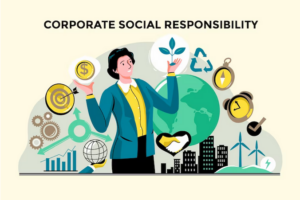
Introduction
Climate change poses a significant threat to our planet, requiring urgent action and innovative solutions (3). However, the global South consisting of developing nations faces unique challenges in effectively responding to climate change. One of such challenge is due to limited access to critical technologies (1). This article explores how reforming global patent laws in addition to the financial aid and others can empower the global South to develop and adapt better.
Challenges with respect to climate change adaptation in the global south
Patent laws play a vital role in incentivizing innovation and protecting intellectual property rights (3). However, the current global patent system is one of the limiting factors in the climate change adaptation and mitigation efforts in the global South. The following factors highlight some of the challenges faced by the developing nations:
- Limited Access to Climate-Related Technologies: High licensing costs and strict patent enforcement make it difficult for developing nations to access and deploy some climate-related technologies, hindering their ability to adapt effectively (1). According to a study published in the journal Development and Change, a lot of countries in the global south especially in Africa are facing serious challenges related to costly inputs and restrictive crop management regimes with the introduction of genetically modified (GM) crops (7). People in these countries and are still forced to rely on less effective or more expensive farming methods because they cannot afford the licensing fees for efficient technologies in the Agricultural sector which is limiting their ability to adapt to changing environmental conditions (9).
- Technology Transfer Barriers: Stringent patent laws create obstacles to the transfer of climate technologies from developed to developing nations. This limits the global South’s capacity to adopt and implement innovative solutions that can mitigate and adapt to climate change (4). For example, India has faced significant difficulties in accessing clean energy technologies, such as solar panels and wind turbines, due to the high costs associated with licensing and patent enforcement (2).
- Disincentives for Indigenous Knowledge and Local Innovation: Existing patent systems often fail to recognize and protect traditional knowledge and indigenous innovations. This discourages local communities in the global South from developing and implementing context-specific climate change adaptation strategies (8). For example, indigenous communities in Ecuador have faced challenges in accessing and using their traditional knowledge to develop climate change adaptation strategies due to the lack of recognition and protection of their intellectual property rights (10).

Reforming Global Patent Laws for Climate Resilience
The following practical examples demonstrate how reforms in global patent laws are crucial and can help facilitate climate resilience in the global South:
- Promoting Open Licensing and Patent Pools: Encouraging the establishment of open licensing frameworks and patent pools for climate-related technologies can facilitate wider access and technology dissemination (3).
- By pooling patents from different inventors or companies, developing nations can access a broader range of technologies at reduced costs, accelerating their adaptation efforts. Example: The World Intellectual Property Organization (WIPO) and other international organizations can collaborate with patent holders and encourage voluntary participation in patent pools specific to climate technologies. This would facilitate technology sharing and ensure equitable access for the global South (3).
- Expediting Patent Examination for Climate Technologies: Streamlining the patent examination process specifically for climate-related technologies can expedite their deployment. By prioritizing the examination of climate-related patent applications, developing nations can access innovative solutions faster, enabling more effective climate adaptation measures. Example: National patent offices can establish dedicated units to fast-track the examination of climate-related patent applications, ensuring timely access to technologies (3).
- Encouraging Collaborative Research and Development (R&D) Partnerships: Facilitating international collaborative R&D partnerships can enhance technology transfer and innovation in the global South (5). By fostering cooperation between developed and developing nations, patent law reforms can create opportunities for joint research projects, technology co-development, and knowledge exchange. Example: Governments, research institutions, and international organizations can establish more funding programs to support collaborative R&D projects focused on climate change adaptation technologies (3).
Conclusion
Patent law reforms can provide incentives for intellectual property sharing and joint commercialization, fostering sustainable development in the global South (3). Reforming global patent laws holds immense potential in empowering the global South to develop and adapt better to climate change. Through open licensing, expedited patent examination, and collaborative R&D partnerships, the global South can gain equitable access to climate technologies, accelerate their adaptation efforts, and contribute to a more sustainable future (3). International cooperation and a commitment to bridging the technological divide are essential for implementing patent law reforms that enable the global South to actively combat climate change and foster resilience (6). While such reforms would be of immense help in the fight, it is also important that the approach to such reforms should more of a collaboration and should not provide a de-motivation for further researches.
References
- Emma, P., Technology transfer, climate change and the developing countries: the difficulties posed by green patents, Journal of Intellectual Property Law & Practice, Volume 18, Issue 5, May 2023, Pages 397–406, https://doi.org/10.1093/jiplp/jpad039
- Goldar Amrita, Sharma Shubham, Sawant, Viraj, Jain Sajal, Climate change & technology transfer: Barriers, technologies and mechanisms, Working Paper, No. 382, 2019, https://www.econstor.eu/bitstream/10419/203716/1/1669531791.pdf
- Ring, Caoimhe, Patent Law and Climate Change: Innovation Policy for a Climate in Crisis (August 19, 2022). Harvard Journal of Law & Technology Volume 35, Number 1 Fall 2021, Available at SSRN: https://ssrn.com/abstract=4194764
- Joshua D. Sarnoff & Margaret Chon, Innovation Law and Policy Choices for Climate Change-Related Public–Private Partnerships, in the Cambridge handbook of public-private partnerships, intellectual property governance, and sustainable development 245–288 (Margaret Chon, Pedro Roffe, & Ahmed Abdel-Latif eds., 2018).
- IPCC, Chapter 6: Cities, settlements and key infrastructure, IPCC Sixth Assessment Report, 2021, https://www.ipcc.ch/report/ar6/wg2/chapter/chapter-6/
- Jens Marquardt, Anna Fünfgeld, Joshua Philipp Elsässer, Institutionalizing climate change mitigation in the Global South: Current trends and future research, Earth System Governance, Volume 15, 2023, 100163, ISSN 2589-8116, https://doi.org/10.1016/j.esg.2022.100163.
- Joeva Sean rock, Mathew A. Schnurr, Ann Kingiri, Dominic Glover, Glenn Davis Stone, Adrian Ely, Klara Fischer, Beyond the Genome: Genetically Modified Crops in Africa and the Implications for Genome Editing, 2023, https://doi.org/10.1111/dech.12750
- Joshua D. Sarnoff, Intellectual Property and Climate Change, with an Emphasis on Patents and Technology Transfer, The Oxford Handbook of International Climate Change Law, 2019, https://digitalcommons.law.seattleu.edu/cgi/viewcontent.cgi?article=1011&context=cambridgehandbook-ppp-ip-sdg
- Kristalina Georgieva, Vitor Gaspar and Ceyla Pazarbasioglu, Poor and Vulnerable Countries Need Support to Adapt to Climate Change, 2022, https://www.imf.org/en/Blogs/Articles/2022/03/23/blog032322-poor-and-vulnerable-countris-need-support-to-adapt-to-climate-change
- Wilson Center Publication, The Use of Indigenous Traditional Knowledge in Climate Change Strategies, 2021, https://www.wilsoncenter.org/event/use-indigenous-traditional-knowledge-climate-change-strategies

Very interesting topic to write about, Yakubu. Well summarised.
The part about indigenous knowledge is specially well taken as the same has been increasingly put forth by postcolonial and feminist scholars in their IR theories. Patent rights are a primary example of this, as they still continue to work on the same old realist theory of IR. Talks of scientific collaboration are always lauded, till we go into the uncomfortable territory of cross border collaboration between Global South and North and start to question the division of labour that presently exists between “data providers” of the global south and “researchers and analysers” of the global north. The entire history of what constitutes as knowledge and hierarchisation in production and transmission of knowledge have replaced old racist and supremacist biases with new ones. I hope governments are open to touching upon this aspect in the future, rather than coming up with random unplanned funds and creating grounds for further division on “givers” and “takers” politics that goes on right now.
Thanks Yakubu for your post.
I totally agree with the point that patent laws impose limitations on countries in the global south seeking to develop solutions for adaptation and mitigation, particularly due to the high costs involved. Furthermore, I am of the opinion that traditional knowledge should be recognized as a valuable resource for creating strategies to adapt to climate change. Although recent IPCC reports have highlighted this aspect, there remains a need for greater inclusion of such knowledge. Have a look at this: https://www.nature.com/articles/nclimate2954.
Despite the points mentioned above, I consider that the solution doesn’t solely lie in reforming patent laws through open licensing. From my perspective, countries in the global south, should aim to reduce their reliance on innovations and technologies originating from developed nations in the global north. Instead, there should be a greater focus on transferring resources and knowledge to the global south, enabling the creation of adaptation and mitigation solutions tailored to their specific needs and challenges.
Furthermore, your point regarding the promotion of cooperative research and development appears to be a viable approach. However, it’s important to recognize that such collaborations do not always result in equitable win-win agreements. This phenomenon is exemplified in various areas of science, as showed in this article: https://www.nature.com/articles/d41586-023-02313-1.
Improving the accessibility to climate change adaptation and mitigation related technology for countries in the global south is critical. I also agree that reforming patent laws can help improve the adaption and mitigation to climate change in the global South. But, as you also already mentioned, patent laws are important in incentivizing innovation and protecting intellectual property rights.
In my opinion, your arguments for reforming the patent laws are correct and important. The global South needs access to technologies, and indigenous knowledge need to be considered as well.
However, open licensing and patent pools also bring challenges. Patent laws, as they are right now, serve as an incentive for investing in research and develop new technologies. By giving the inventors exclusive rights, the motivation for inventing and researching new technologies is upheld.
Another very important aspect of new inventions is the investment in research, which is often promoted and sponsored by the private sector. To keep the private sector investing, it is essential to maintain strong patent protection on new technologies for them to remain attractive to invest in.
I think there is a risk that open licensing and patent pools will slow down and demotivate the invention of new technologies in the global North.
Thus, I agree with your conclusion, that the focus should be on collaborations between the global North and the global South. Such collaborations would also include indigenous knowledge and local innovations and could lead to technology transfer and knowledge exchange, benefiting both regions. Furthermore, inventions resulting from these collaborations would give patent rights to the global South, which would help developing countries to adapt and mitigate better to climate change.
Very well, you have a point and I agree with ” Patent laws, as they are right now, serve as an incentive for investing in research and develop new technologies”. if all these inventions in the nutshell is to help the fight against climate change, so when will the battle lines ever be drawn clearly between making super normal profits and fighting climate change at all cost? We are hoping that with time, people will be driven more by protecting what we have rather than more profit and make room for some compromises. Patent laws, as they are right now has a lot of roadblocks that needs to be looked at.